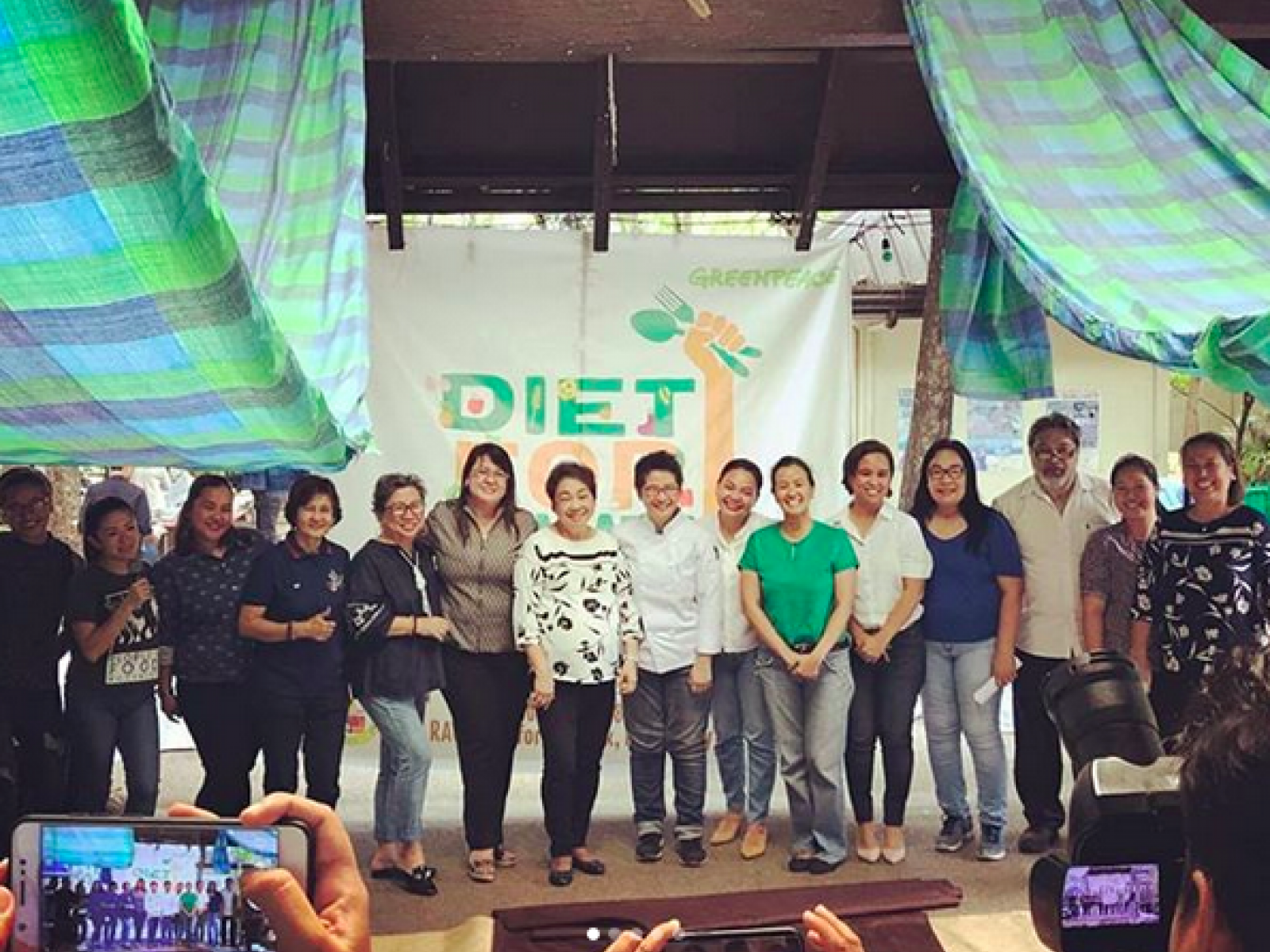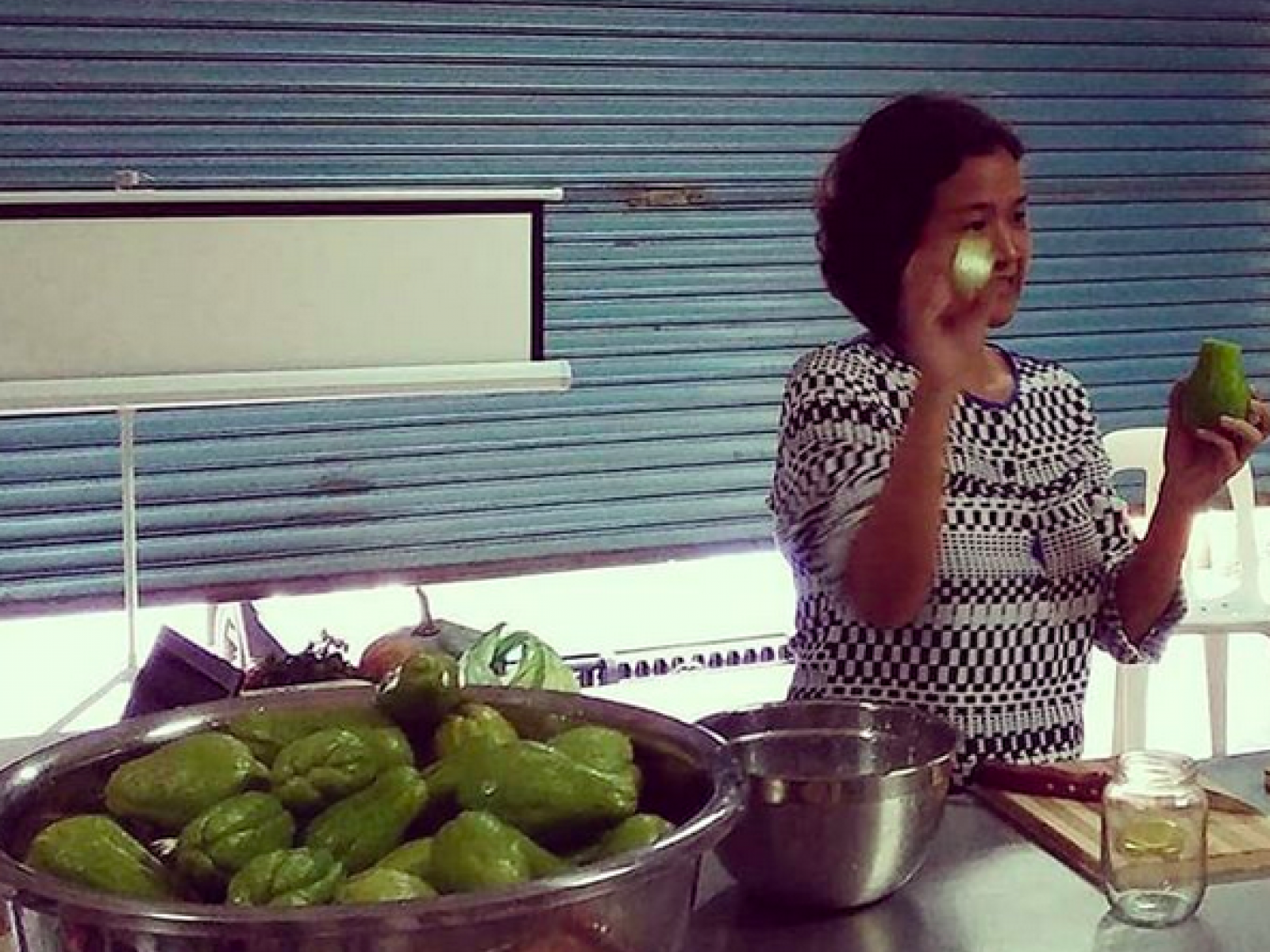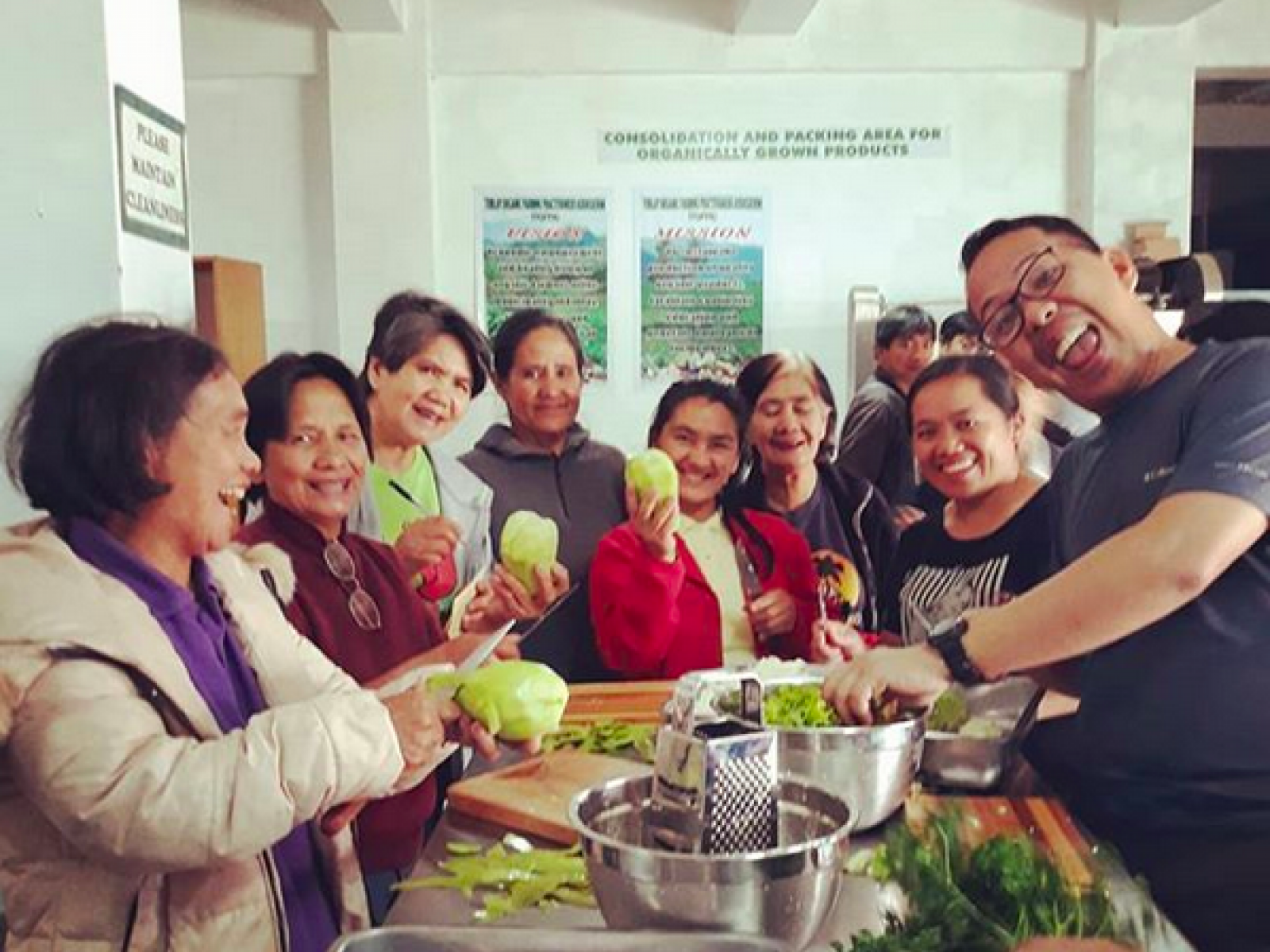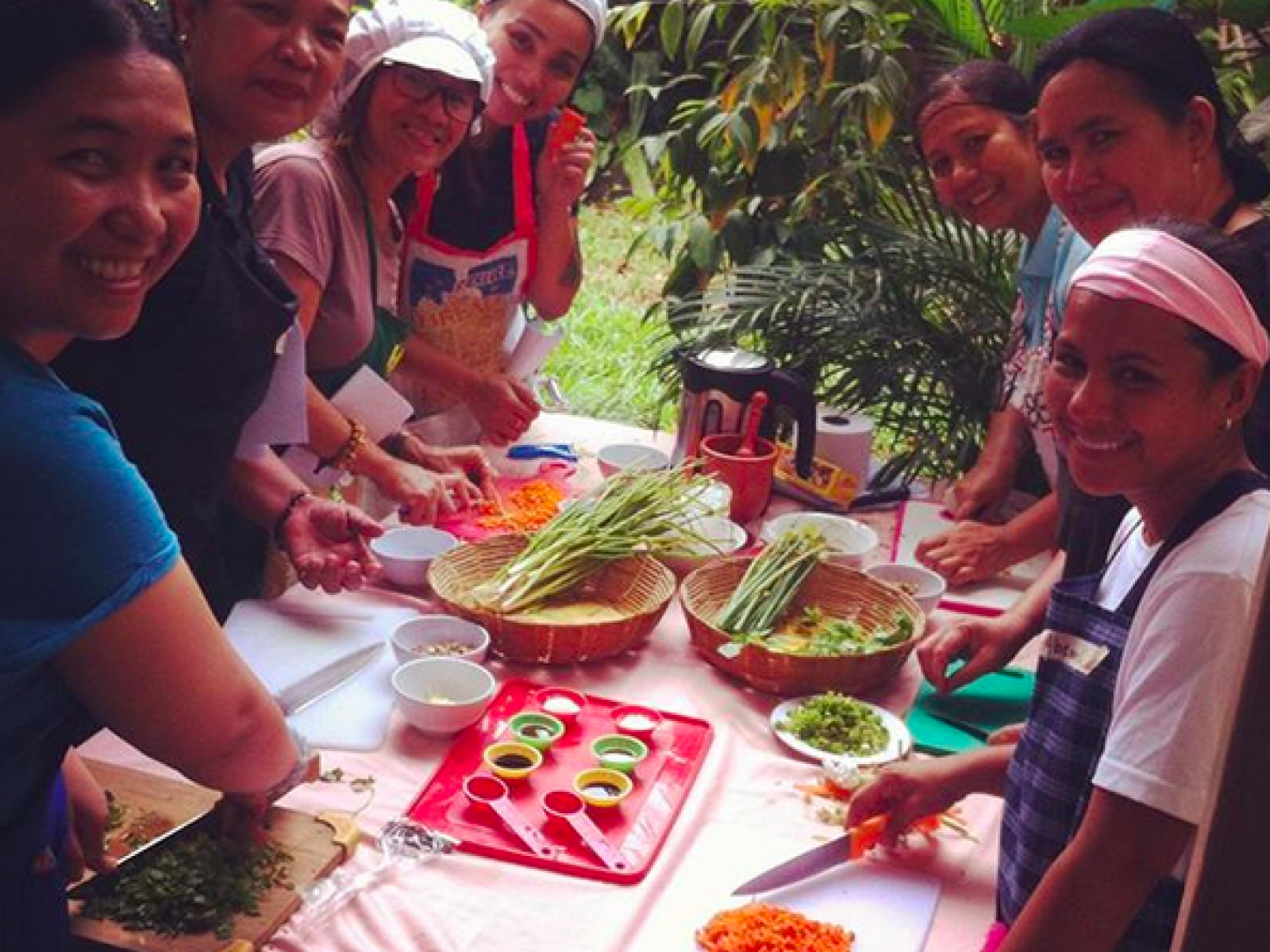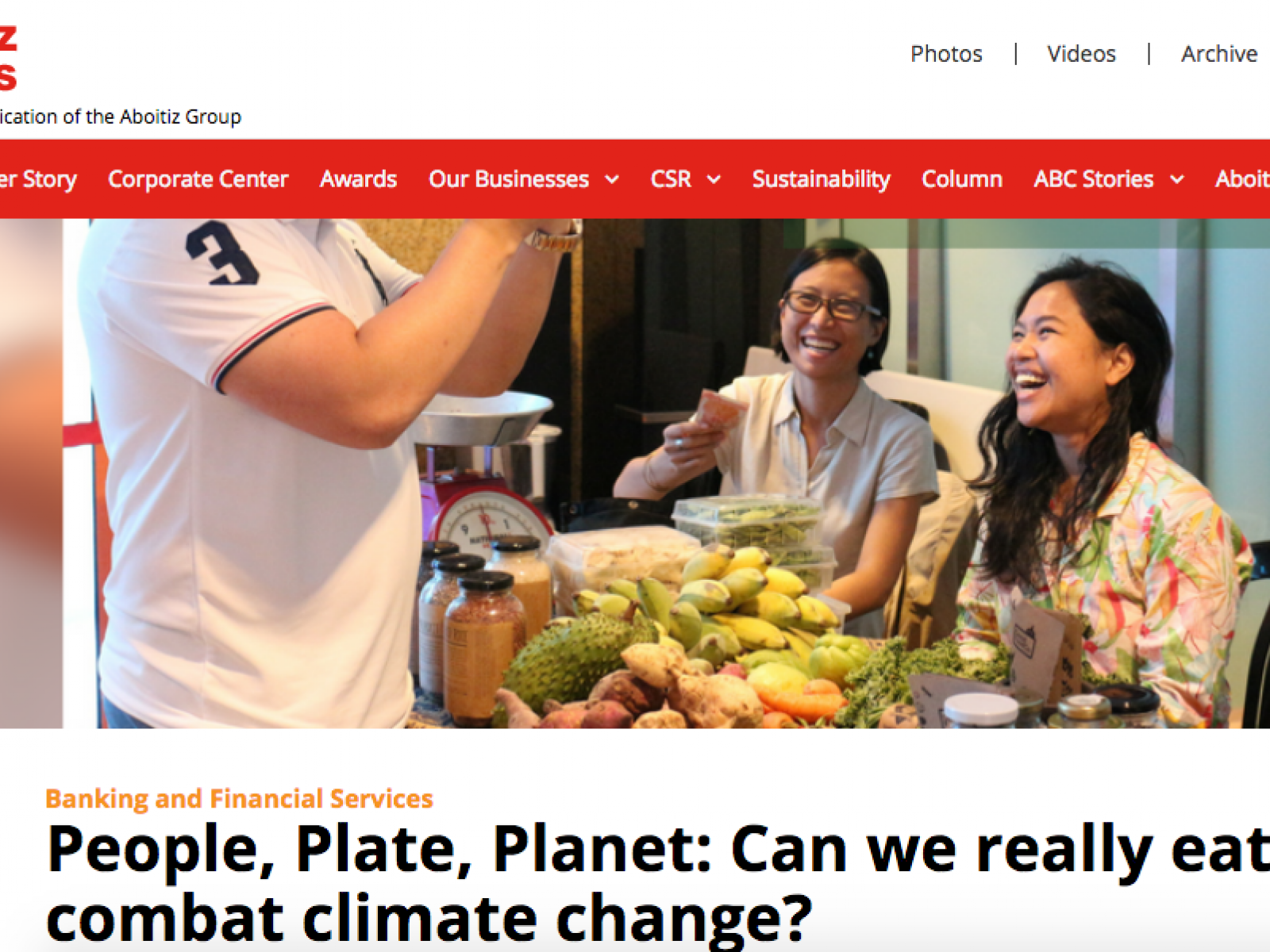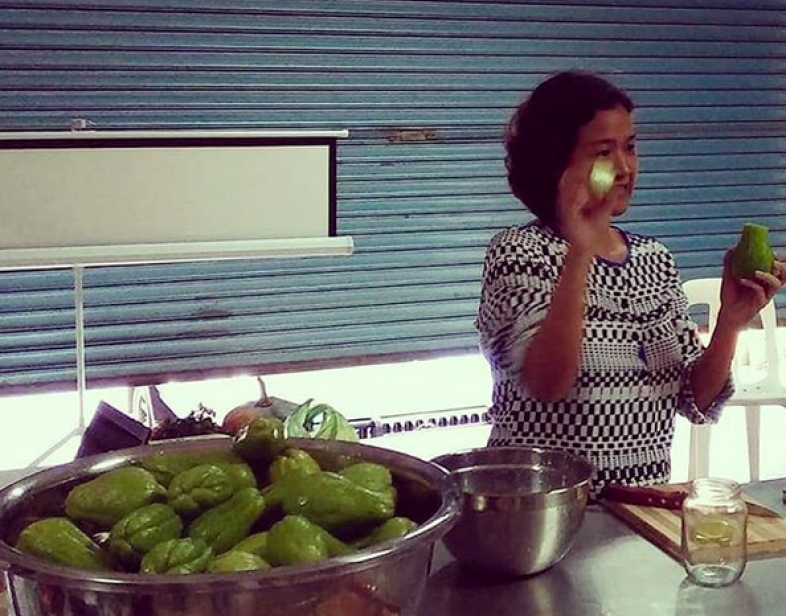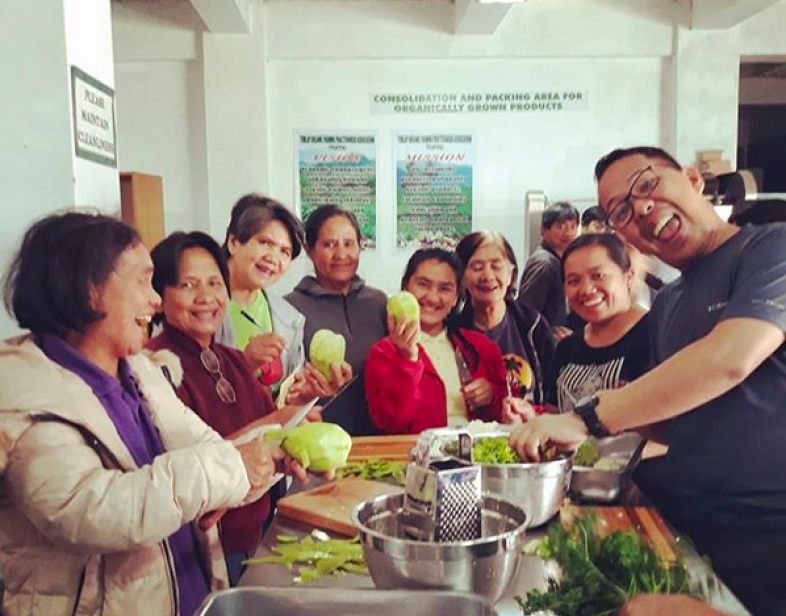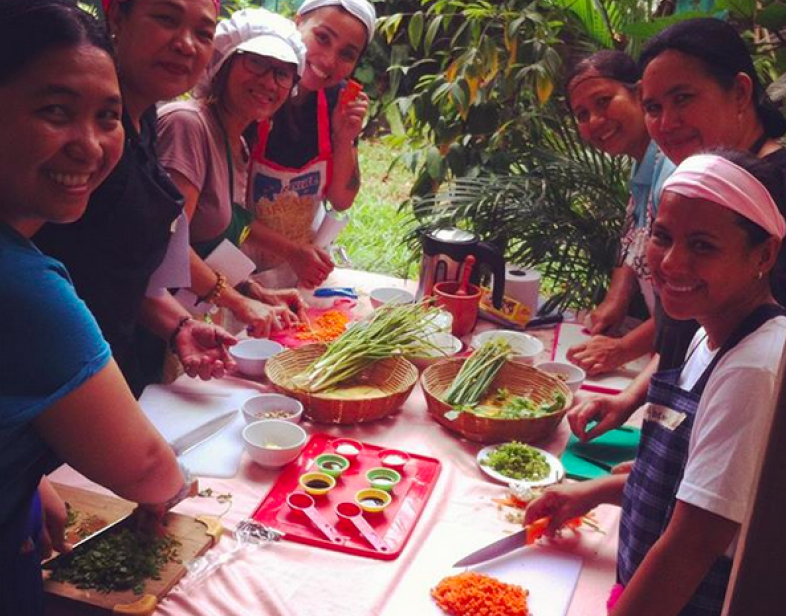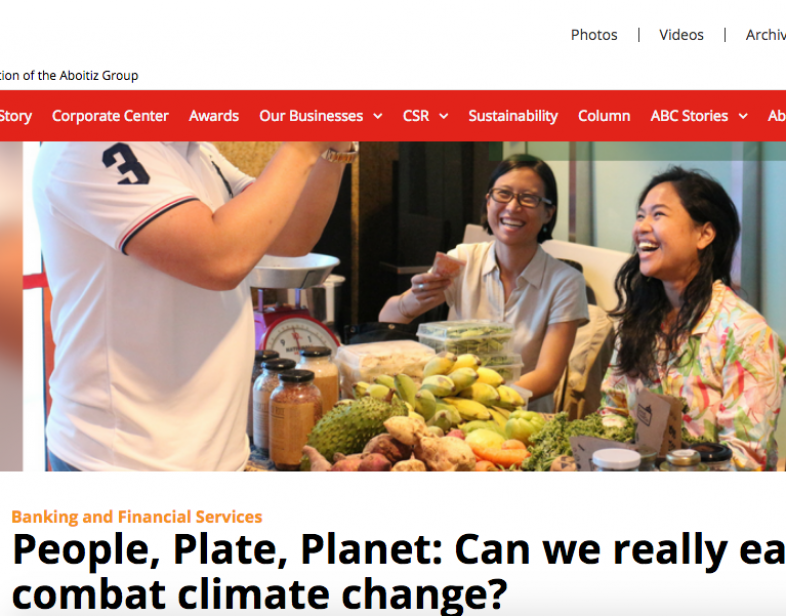An Overview Of Our Solution
The evidence on the connections between plate and planet is strong, and we can contribute to fighting climate change with a choice we make three times a day: what we eat. Committing to a plant-rich/-based diet, however, is challenging in the Philippines, which loves its pork and poultry, and especially among the low and lower-middle income communities because healthy foods is mostly catered to the more affluent sector. This is a pity given plant-based foods are some of the healthiest, most affordable foods. The intervention is a grassroots program that seeks to equip women in these communities with the knowledge, skills, and support system to make healthy plant-rich/-based eating accessible, beneficial, and therefore, sustainable. Climate change may be a big issue but the solution is in truly our hands.
- Population Impacted: 300 direct
- Continent: Asia
Context Analysis
The connection between plate, planet, and wellbeing are established. These connections are critical to the lives of Filipinos. 1 out 3 Filipinos die prematurely of heart disease, diabetes, cancers, and respiratory diseases (UN 2018); 3 out of 4 can be mitigated by dietary changes. Access to health care is inequitable, with high out-of-pocket spending that impoverishes Filipino families while public health care facilities are plagued with low-quality health services. The Philippines also ranks 5th in the latest climate risk index. All these make the widespread adoption of plant-rich/-based diets critical. However eating more plants is still perceived as a trend available only to the more affluent sectors. This is unfortunate given that the plant foods, especially legumes and whole grains, are some of the most inexpensive, nutritious foods around, and the Philippines is largely agricultural, with a broad lower and lower middle classes that can benefit greatly from eating more plants.
Describe the technical solution you wanted the target audience to adopt
We want to equip women in communities with plant-based cooking skills (techniques, recipes) to educate and empower them in making food choices that are good for their bodies, families, the planet, and their wallets. It will do this through a training manual, pilot workshop, and community hub that will make plant-rich/-based eating easier, accessible, and sustainable. The manual will contain modules with information that connects plant-based eating with climate change, because people are still unable to make the connection between a personal act and planetary impact. It will also contain guidelines on activating the hub and activities to make the intervention sustainable and relevant to the community, such as a kickoff workshop, guidelines for regular meetings or potlucks, conducting surveys/consultations, creating a small urban garden, learning more about climate change, creating a program for children, engaging health professionals for specific chronic conditions, etc.
Type of intervention
Describe your behavioral intervention
Eating more plants is beneficial but whether people do or not is another matter. It faces resistance due to a lack of knowledge and skills, existing biases on affordability and taste, unknown ingredients and feelings of isolation. What we learned from our interviews/interactions with our publics is that people are open to trying it out provided that the transition is guided with an awareness of purpose, availability of information, skills, incentive and a support system. Our intervention is the wider adoption of plant-rich/-based eating through a manual and kickoff workshop on plant-based cooking skills and guides in the creation of a support system for a sustainable behavioral change. The manual contains info on plant-based cooking techniques and recipes. Plant-based cooking is quite different and requires an understanding of flavor development when using plant-based ingredients. Growing one’s food using organic means will be part of the intervention to promote safety and affordability of one’s food. Creating a community hub where the stakeholders can get together, share experiences and recipes, host potlucks/get-togethers, conversations with experts, and cooking demos will offer the social support system that makes the transition easier and mitigate feelings of isolation. The hub follows the moai, a committed social network inspired in Okinawa Blue Zone that reinforces healthy habits and makes them contagious so that the behavioral change is effective and sustainable.
As needed, please explain the type of intervention in more detail
Our experience has shown us that those people who are able to stick to the new behavior, in this case eating more/all plants are the ones with a compelling reason to do so: well being (health, livelihood), ethics (animal rights, ethical sourcing), environment (climate change, sustainable farming). We start our tutorials with a conversation about why they want to change their behavior, the challenges they face, the enabling factors, and ask them to log a one-week food diary to understand their habits. We ourselves experienced how shifting to a new diet can isolate one. Creating a hub harnesses the power of social incentives, creating a supportive network and routine that promotes feelings of connection and reinforces positive behavior.
Describe your implementation
We tested several activities over one year to gain insights on how to make a plant-based diet accessible and convenient. Those with moderate success combined education and empowerment, such as workshops and knowledge sharing through food-activism events and social media. Success factors are 1) purpose and 2) access to information/experience (recipes, workshop, network of experts). An important enabling factor for those making the behavior change is that of a support system, whether it’s a family (for the individuals) or an organization. A persistent challenge is the fact that this is a personal advocacy and I fund this using my savings or sponsorships. It is something that me and my teammate, both certified plant-based cooks, are passionate about and, based on our actions and collaborations, are committed to. But this posed limitations on the scale of what we can accomplish given I am the one involved in the operations and logistics, while she is based in Australia and does the social media and graphic design requirements. Based on the lessons, we feel that a way to make the behavioral change sustainable is through a manual and kickoff workshop that make plant-rich/-based eating easy, affordable, and rewarding, using accessible ingredients. Targeting the broad lower and lower-middle income communities, we will activate a hub with them, with members who will commit to regular meetings to promote the diet. The manual will contain modules on more tutorials, urban gardening to help with access to ingredients, host conversations with experts on health and environment, and promote plant-based foods to children. Given current limitations, our strategy is to collaborate with organizations who share our ethos and can help us reach more people. The pilot of the solution in 2 areas can have a direct impact on 200 people, and indirectly impact 1200-1500 people, given the average household size here. Scaled up, a municipality-wide roll out can reach tens of thousands of people.
External connections
Good Food connects smallholder organic farmers with consumers in the city using community-supported agriculture. They have the knowledge and network for the creation of vegetable gardens that can be built in the communities, and seeds of local varieties of fruits and vegetables. We collaborate with them through recipe development and use their products in our social media posts. We are able to appeal to more conscious consumers using information about their produce and the farmers who grew them. We work together on food-activism events to inform people about the issues surrounding their food, such as GMO.
We are a partner of Greenpeace in their Diet for Climate campaign. We are developing a children’s book on eating more plants with them and Adarna House, the largest children’s book publisher in the Philippines. Greenpeace also taps us for sampling and cooking demos to support their campaign to reduce meat and dairy consumption by 50%. The Greenpeace partnership can help roll out the intervention given their connections with local government units.
Our third most-important partner is BATIS-Aware, an organization that supports women who were victims of human trafficking. I train them in plant-based food preparation, which they turn into products they sell so that they have a form of livelihood as they try to get back on their feet. Their story has helped inspire other people like them and we would like to be able to use their experience to promote plant-rich dishes.
Who adopted the desired behaviors and to what degree?
Our different activities directly impacted around 300 people. We do not have the figure for the indirect impact. Women were ones who adopted the desired behavior, because they are the decision-makers when it comes to food at home. The extent of the adoption has been the inclusion of more fruits and vegetables into their diet, with requests for healthier snacks for children, rather than a full transition to a plant-based diet. Based on data in our social media accounts, woman comprise more than 80% of our followers. Whenever we have free tutorials or demos, majority of the attendees are women. Another reason why we want to work with women is that while everyone is affected by climate change, they bear the brunt of its shocks. “Often, women and girls are the last to eat or be rescued; they face greater health and safety risks as water and sanitation systems become compromised; and they take on increased domestic and care work as resources dwindle.” (UN)
How did you impact natural resource use and greenhouse gas emissions?
We work with Good Food and Greenpeace to advocate for organic, non-GMO fruits and vegetables and minimum waste and use the opportunity to talk about connections between food and climate. We did a 2-month pop-up in one of the biggest banks in the country (UnionBank) as part of their sustainability program to share information on food, health, and climate among their employees and building tenants. We push for plant-rich/-based (& zero-waste, as much as we can) diets given the scientific evidence on the impacts of large-scale animal agriculture on the climate through food-related climate emissions, deforestation and land use conversion. We have yet to start collecting resource-use or climate-related data on our activities, and would be open to doing so given my background in corporate sustainability and because such info can be shared with stakeholders. Our interactions show us that people feel good when they learn they’re able to make a difference and the shift becomes more sustainable.
What were some of the resulting co-benefits?
Resulting co-benefits of our efforts are nutrition and livelihood. The training with the BATIS women on plant-based cooking to support their fund-raising activities through small catering have led to small livelihood activities for a few women and greater experimentation in the kitchen to develop tasty and affordable plant-based dishes that they can serve to their families. A workshop with farmers on food preservation (fermentation and dehydration) sponsored by of Rice Watch Action Network’s Climate School led to further interest in more product development for food security and livelihood, given the harsh and immediate impacts of climate change on their crops and way of life. The workshops usually lead to interest in more workshops but on enterprise development and financial management, but we have yet to create alliances to pursue this.
Sustainability
The solution will initially rely on grant funding to develop the manual and its contents, launch with a kickoff workshop to activate community hubs in targeted communities, and conduct monitoring for a certain period. The hubs will need venues in the community, and we can partner with local government units or religious organizations to provide free venues for hub meetings. It is envisioned that the hub will be self-sustaining as members develop closer ties, commit to regular monthly meetings, contribute in the potluck, share their own experiences and recipes, and learn to create their own networks within their communities. As the hubs mature, they can serve as models or mentors to new hubs.
Return on investment
Given this was largely out of pocket and supported by different sponsorships on various occasions (volunteers, free or subsidized venues or ingredients, and a small grant at one point), we kept our costs low and relied on collaborations and partnerships. The biggest cooking workshop we did targeted 12 women from BATIS-Aware and was supported by a US$688 grant from The Purpose Business and various individuals, which covered ingredients, handouts, transportation allowance of the women, venue and electricity. The skills helped augment the funds of the organization for their advocacy and the income of a few women. BATIS-Aware was also able to purchase a freezer for their frozen plantbased goods for sale. We have no computations for ROI.
How could we successfully replicate this solution elsewhere?
Total est. cost is US$7,000. Cost of the manual (content, printing) is $4,000, kick-off workshop is $1,000, and piloting of 2 model hubs (one in an urban area, another in a rural area) costs is $1,000. Once produced the manual will be the guide for the solution and used by succeeding hubs that will be created. Monitoring and administrative costs for a 3-month period will be $1,000.The solution is inspired by the community pods that promote plant-based eating after the creation of the movie Plant Pure Nation in the US, and Dan Buettner’s experience of moai in Okinawa and his study of longevity in Blue Zones. These are however first world economies and we would like to replicate this approach in a developing country like the Philippines, which has a large bottom of the pyramid. Both examples also inspire us given their grassroots nature and the ownership it created among the pods/moai so that once activated it can strive to be self-sustaining with little reliance on external funding.
